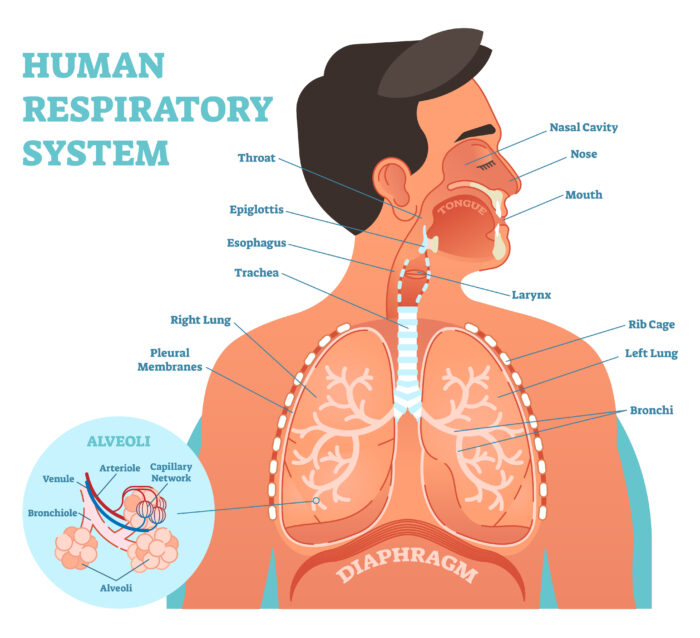How much do you really know about your lungs? Breathing is a fundamental function that keeps us alive and thriving. Keeping your lungs healthy is a vital part of your long-term health, and as your primary care provider, we’re here to break down everything you need to know about your lungs.
Understanding the Importance of Healthy Lungs
Your lungs are remarkable organs that play a vital role in supplying your body with oxygen and removing carbon dioxide. Proper lung function is essential for maintaining overall well-being. Healthy lungs ensure efficient oxygen exchange, support physical activity, and contribute to a robust immune system.
Exploring the Anatomy of the Respiratory System
The respiratory system consists of the airways, lungs, and muscles involved in breathing. The primary components include the trachea, bronchial tubes, and alveoli – tiny air sacs responsible for gas exchange. Visualizing this intricate network can help you appreciate the complexity of your respiratory system.

Common Respiratory Issues and Their Causes
Various factors can compromise lung health, leading to respiratory issues. Conditions like asthma, chronic obstructive pulmonary disease (COPD), and pneumonia are common. Asthma, often triggered by allergies or environmental factors, causes airway inflammation and constriction, resulting in breathing difficulties. COPD, often linked to smoking, damages the air sacs and airways, impeding airflow. Pneumonia, caused by infections, causes inflammation and decreases oxygen.
Tips for Promoting Lifelong Lung Health
Preserving lung health is a lifelong commitment. Here are some actionable tips to help you maintain strong and resilient lungs, so you can always feel your very best:
- Avoid Smoking and Secondhand Smoke: Smoking is a leading cause of lung disease. If you smoke, quitting is the single best thing you can do for your lung health. Avoiding secondhand smoke is equally important.
- Stay Active: Regular physical activity enhances lung capacity and circulation. Engaging in aerobic exercises like walking, jogging, cycling, and swimming can significantly improve lung function.
- Practice Deep Breathing: Incorporate deep-breathing exercises into your routine. This practice helps increase lung capacity and promotes relaxation.
- Maintain Indoor Air Quality: Ensure proper ventilation in your living spaces to reduce exposure to indoor pollutants. Consider using air purifiers if needed, or add in some air purifying plants.
- Stay Hydrated: Drinking an adequate amount of water maintains the thin mucus layer in your airways, aiding in efficient lung function.
When to Seek Medical Attention
Understanding when to consult a medical professional is essential. If you experience persistent shortness of breath, chronic coughing, chest pain, or any sudden changes in your breathing patterns, it’s crucial to seek medical attention promptly. Early diagnosis and treatment can prevent minor issues from developing into serious conditions.
Your lungs are incredible organs that deserve attention and care. By understanding their function, being aware of common respiratory issues, and adopting a proactive approach to lung health, you can lead a vibrant and active life. Remember, our primary care office is here to support you in your journey toward optimal lung health. Checking on your lungs is a regular part of your yearly wellness exams. If you’re due for one, schedule an appointment today.
This article is for information purposes only and is not a substitute for professional medical advice from or consultation with your healthcare provider.
